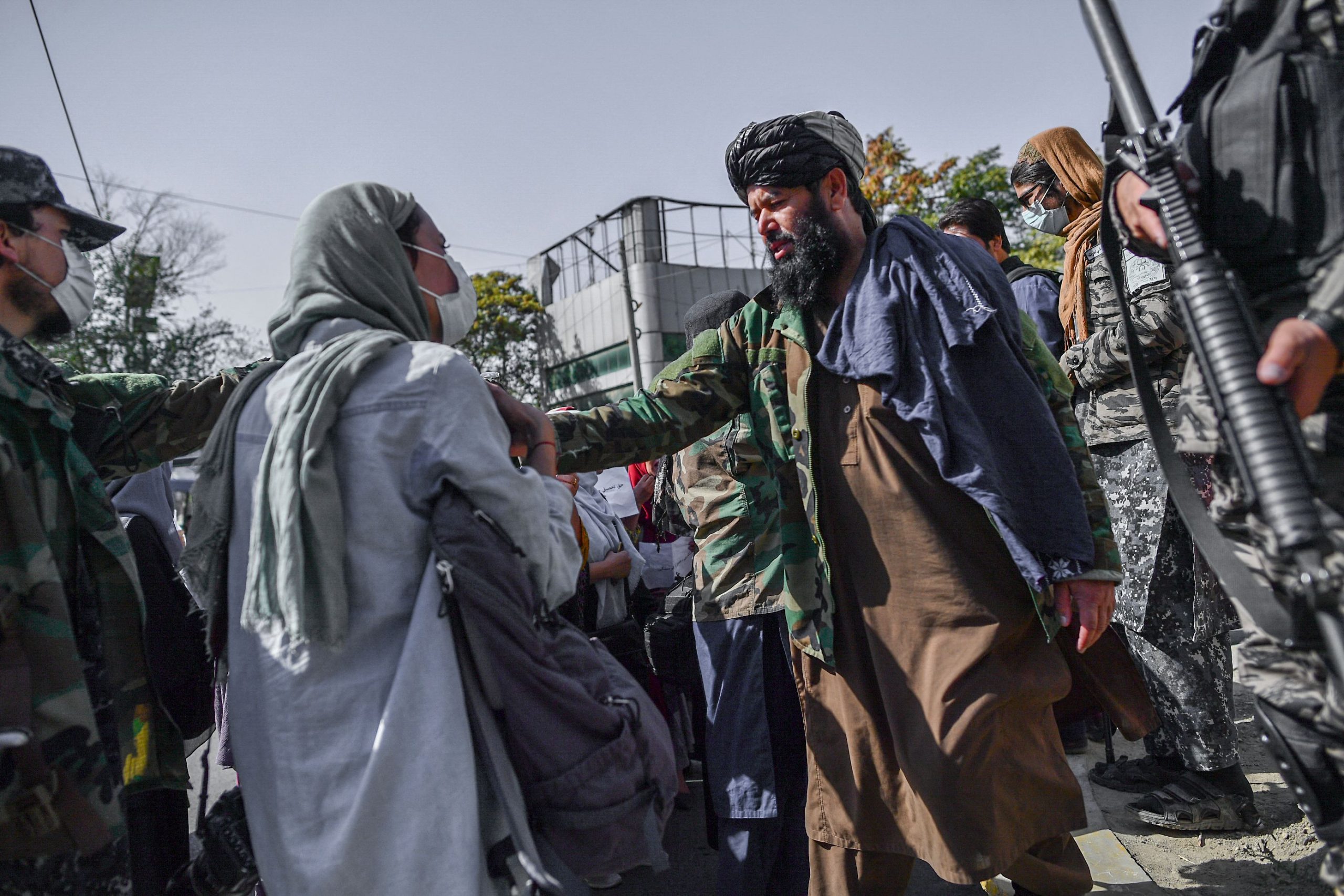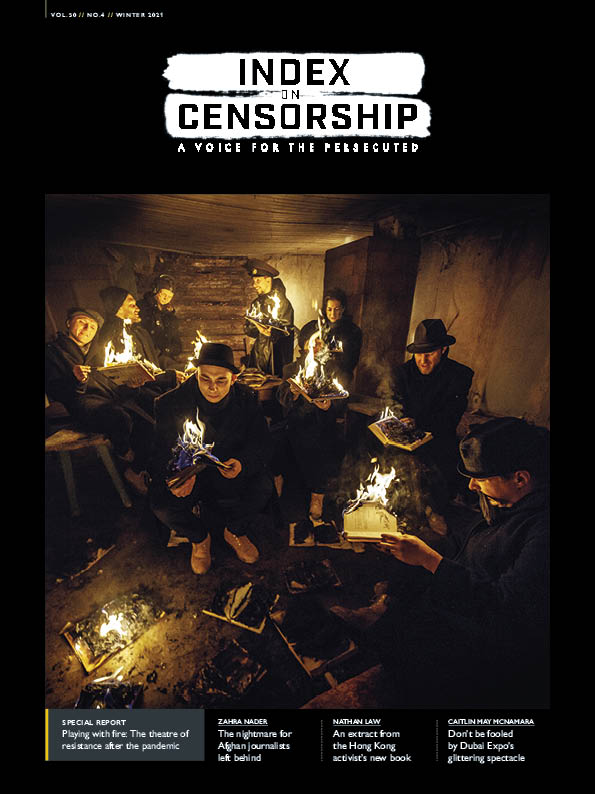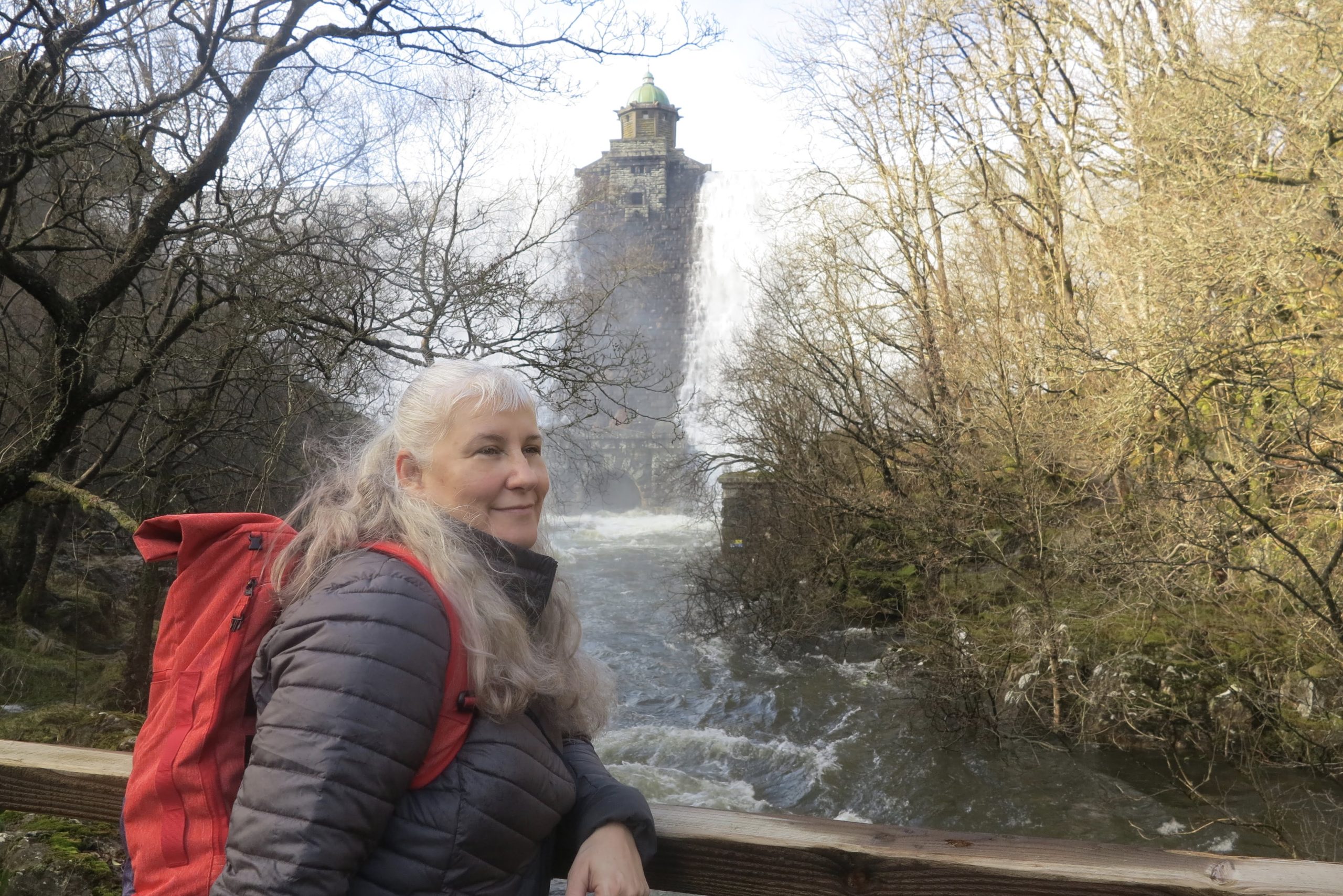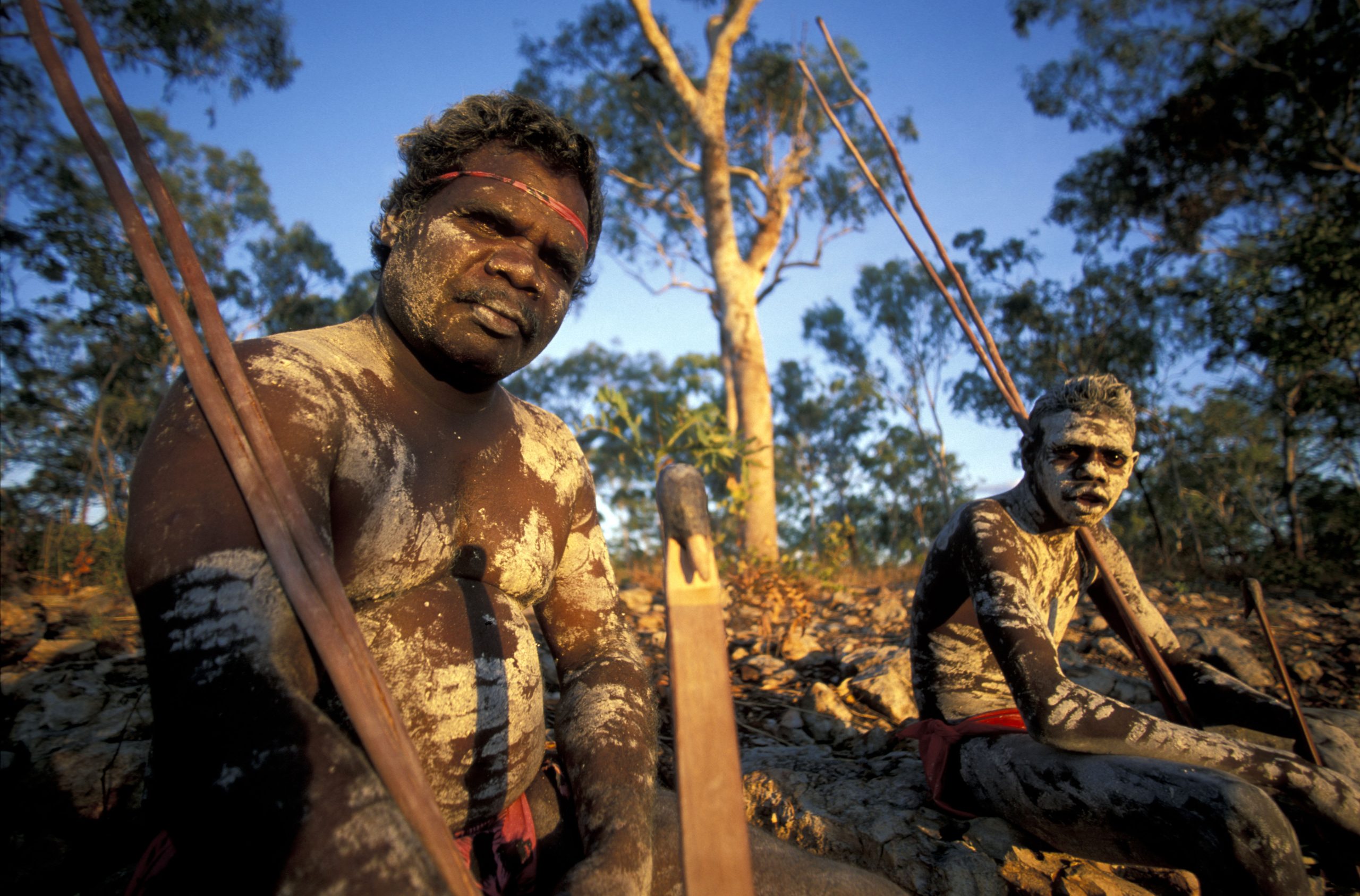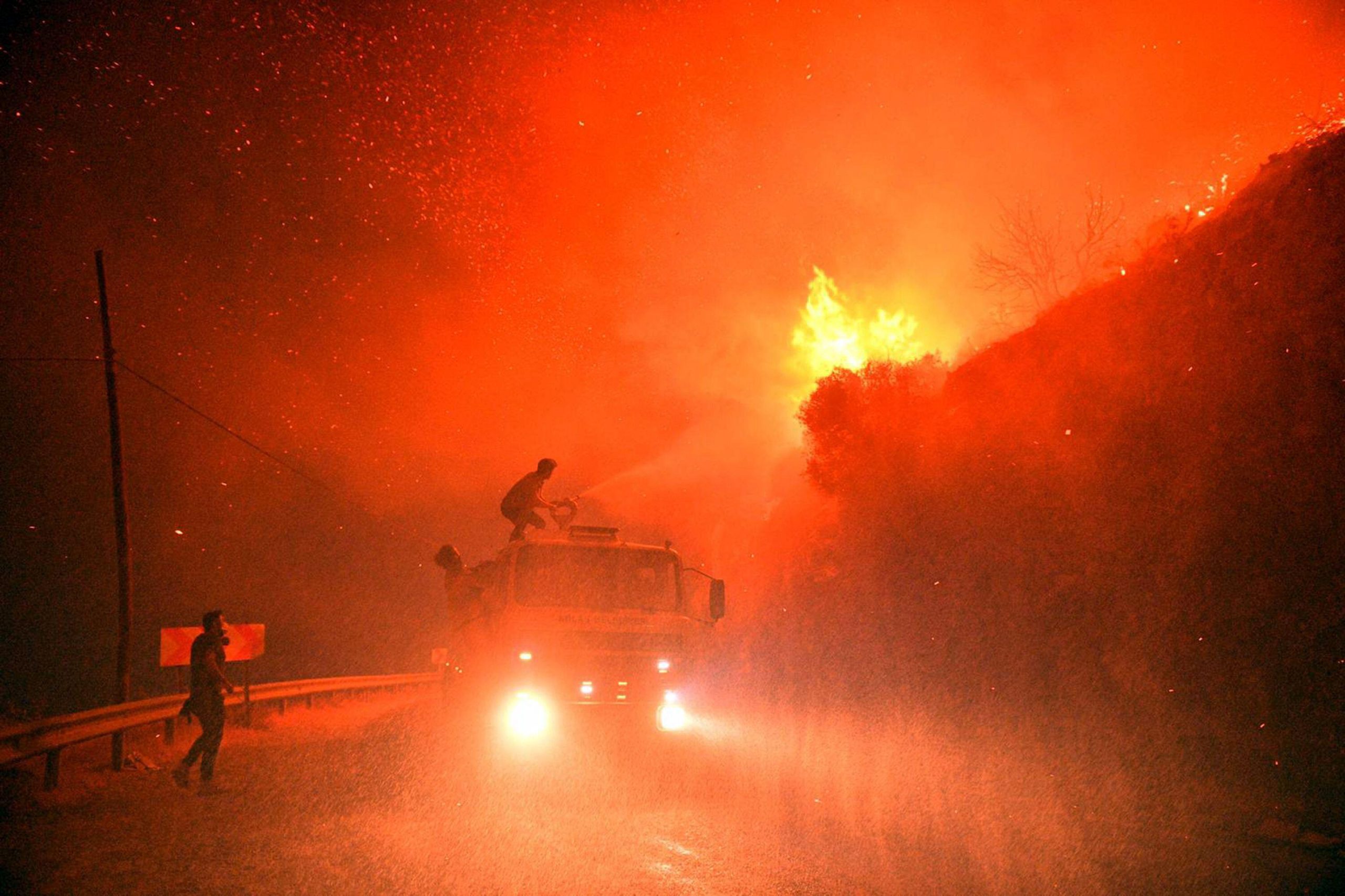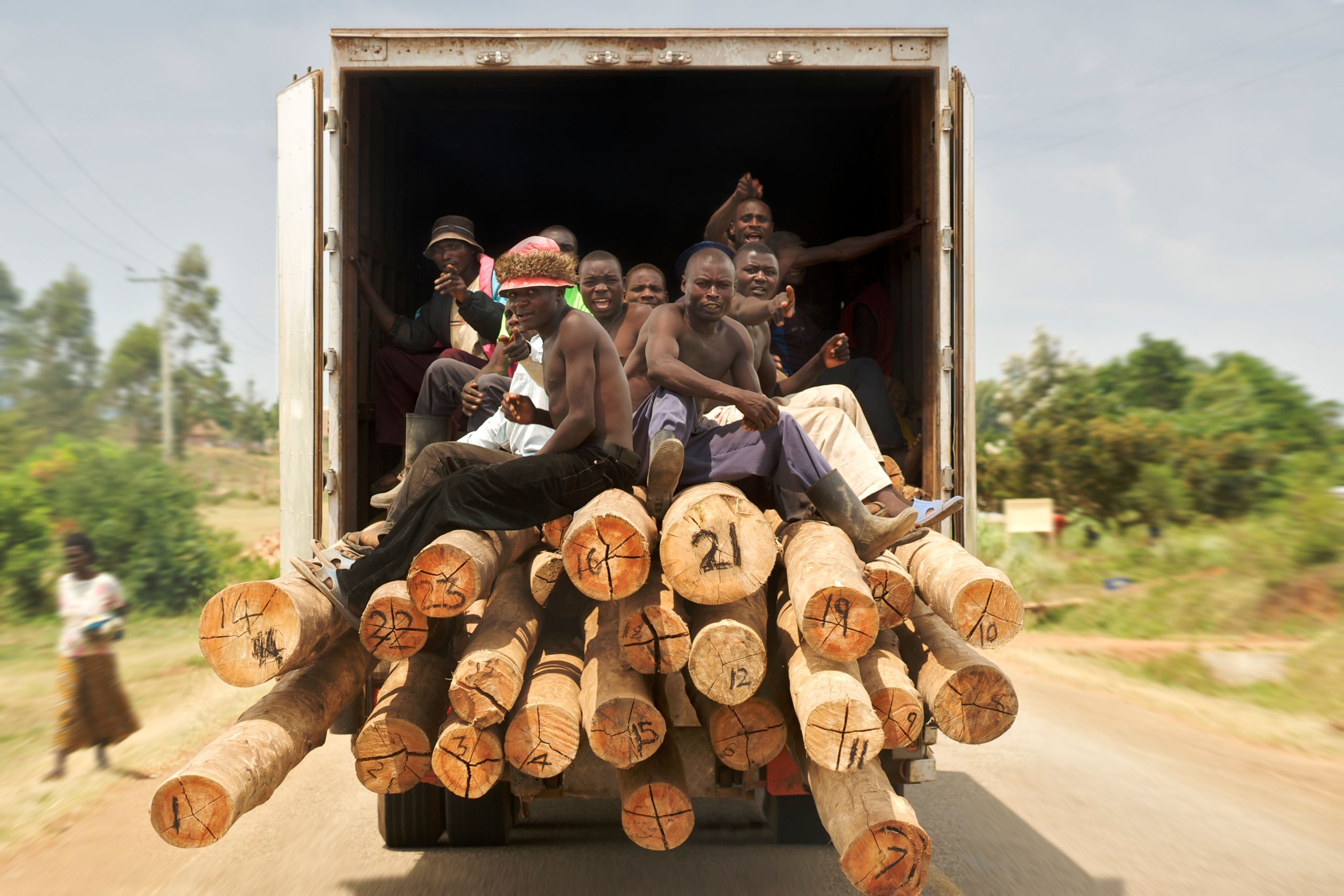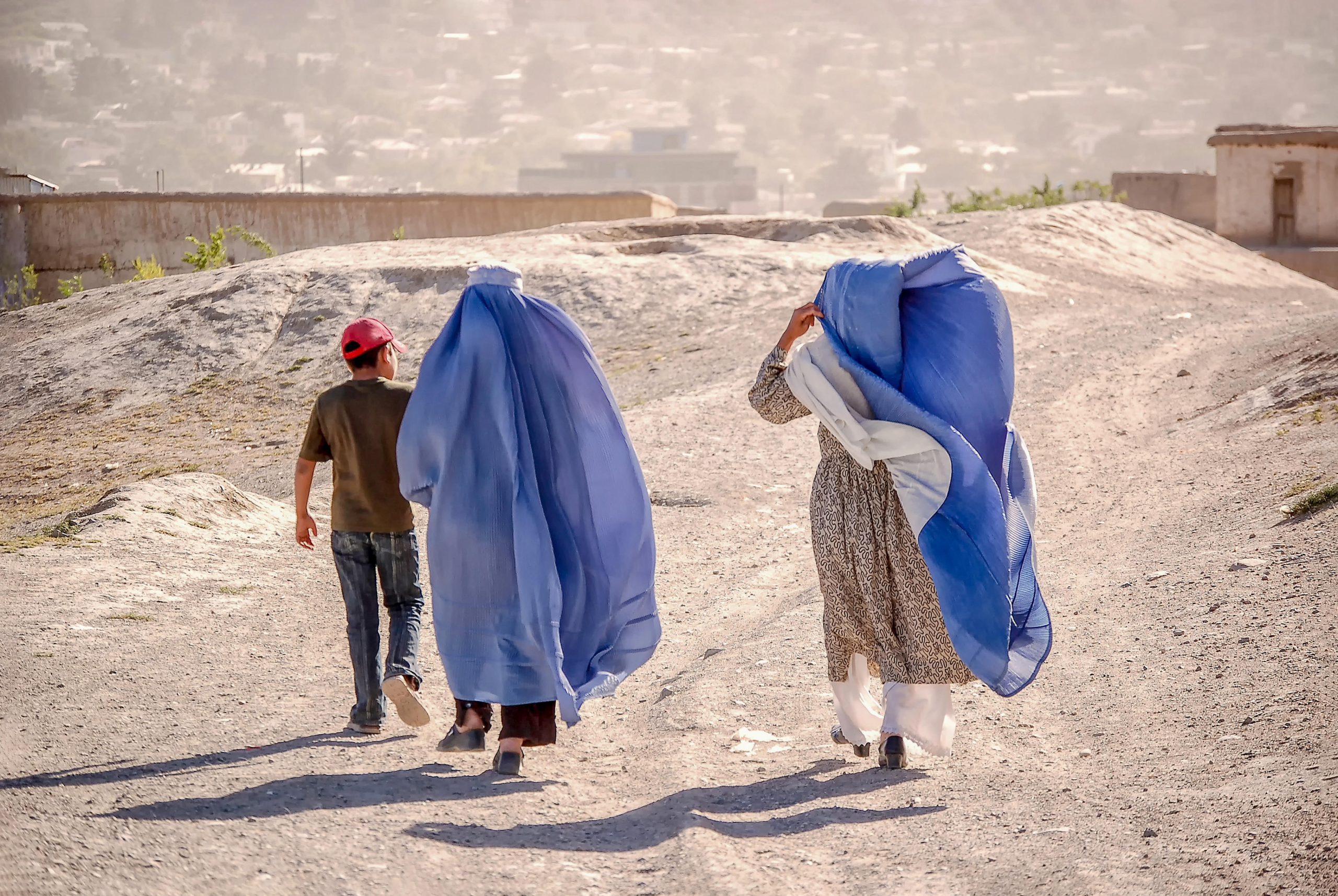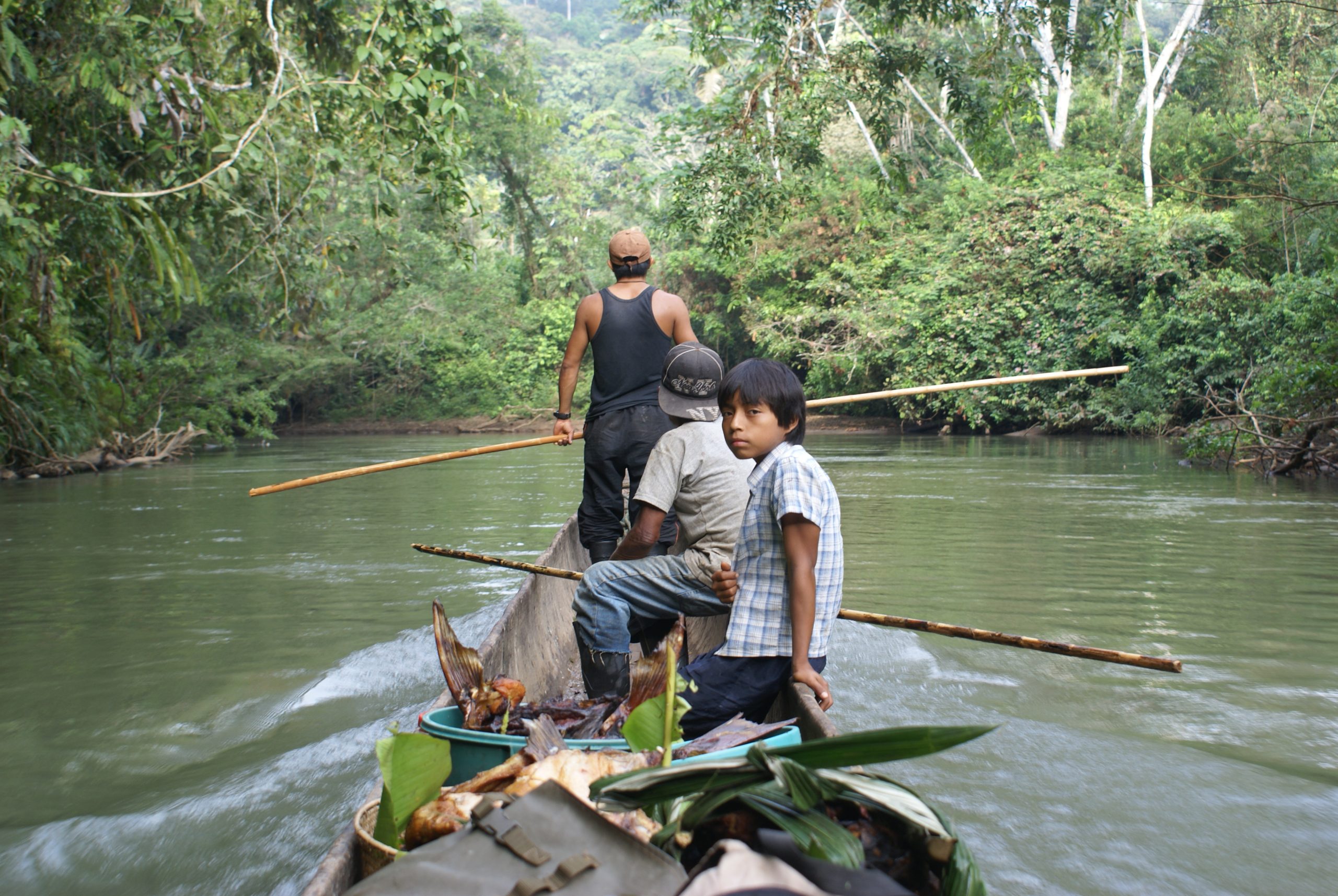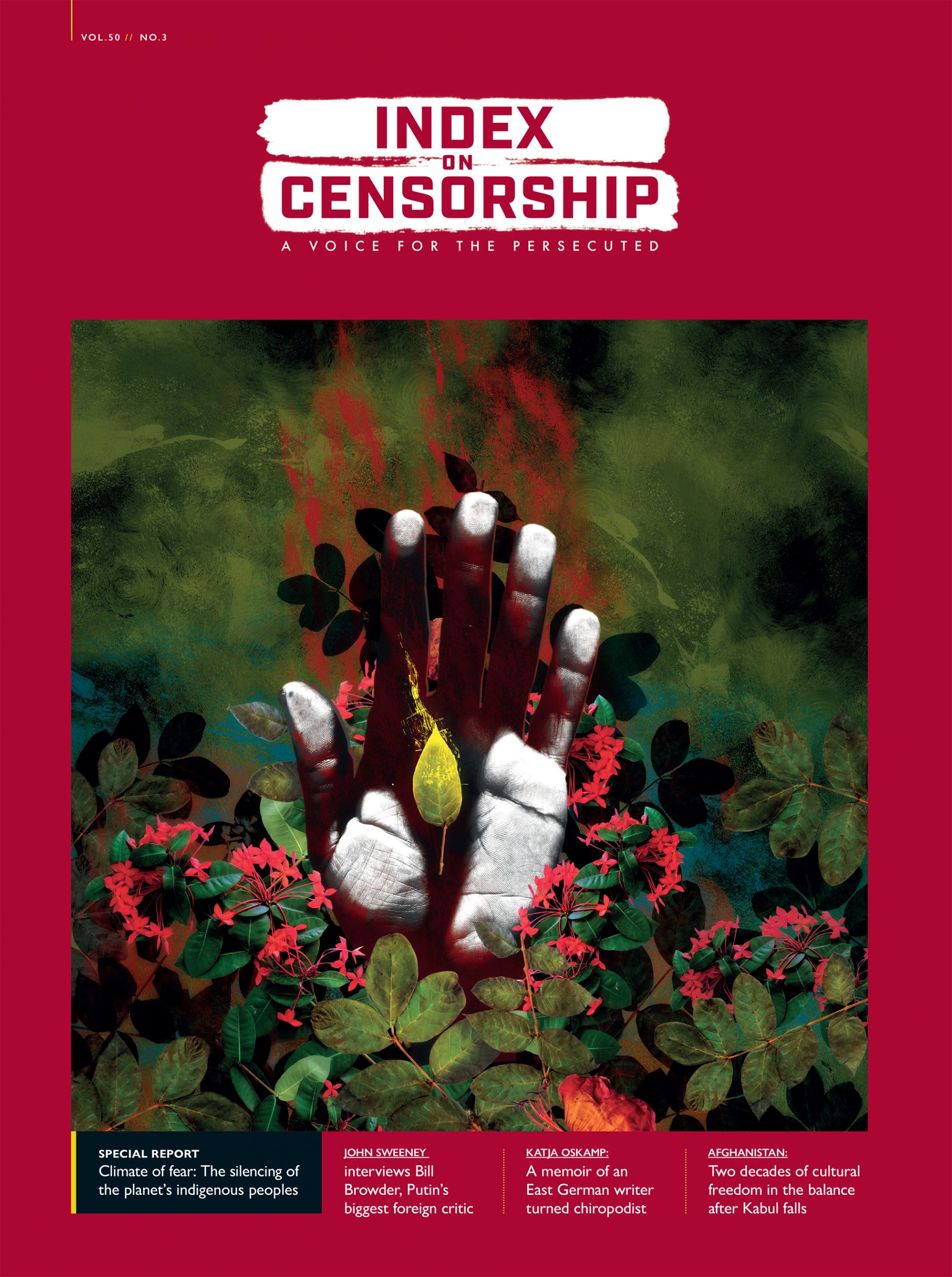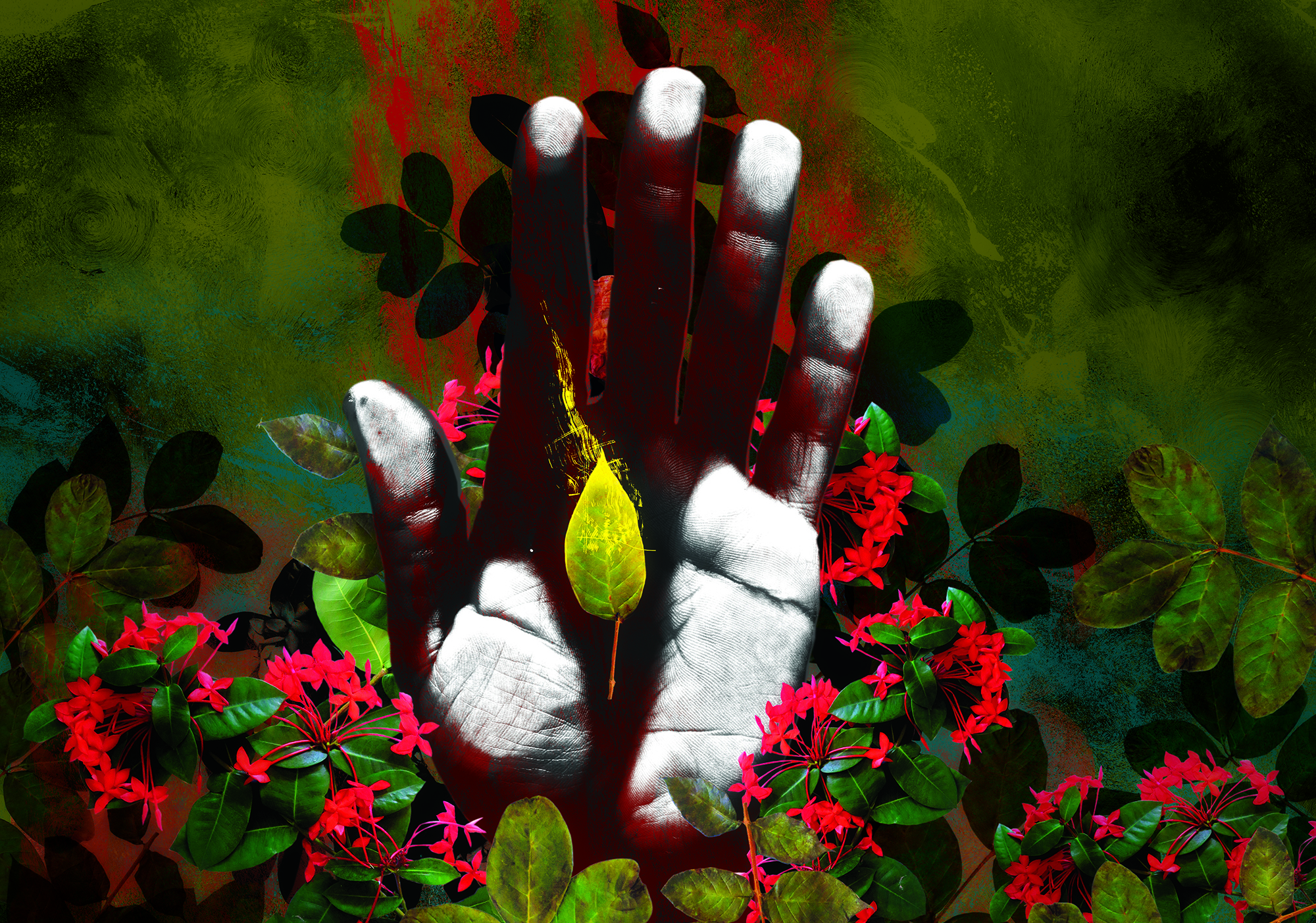Many journalists – women in particular – have fled the Taliban or are in hiding from the brutal regime
CATEGORY: Magazine
Playing With Fire: How theatre is resisting the oppressor
The pandemic represented a de facto form of censorship that took everyone by surprise – and played straight into the hands of authoritarian leaders. Around the world, stages were empty, actors out of work. And yet some still managed to keep the flame of theatre alive even during the worst of times. The Winter 2021 edition of Index is a tribute to them. Index has a proud history of supporting the theatre of resistance and this issue marks our determination to continue the tradition. The centrepiece of the magazine is a profile of long-time Index collaborators Belarus Free Theatre by the celebrated theatre writer and Index trustee Kate Maltby. BFT have long played a central role in resistance to the Lukashenko dictatorship and we are pleased to have been able to work together on a project to publish letters from dissidents held in Belarusian prisons over the past year. We are delighted to publish Turkish playwright Meltem Arikan, who found refuge in the UK after being forced out of her home country by the Erdogan regime. Following the performance of Arıkan’s play Mi Minör, she was accused of sparking the Gezi Park protests in 2013. She writes for us about her continuing struggles, particularly after being diagnosed with autism. Jonathan Maitland discusses his experience of censorship and the limits of free speech on the stage in the UK. We also publish Muzzled, a new work by Iranian playwright Reza Shirmarz written exclusively for Index as a response to Samuel Beckett’s Catastrophe, published in the magazine in 1984. The situation in Afghanistan for writers, artists and journalists continues to be of great concern since the fall of Kabul in August. In the light of developments, Afghan journalist Zahra Nader, now based in Canada, calls for responsible reporting of her country by the Western media and highlights the brave work of the women journalists of Rukhsana Media, who continue to report from the country. We also publish an extract from Hamed Amiri’s memoir, The Boy With Two Hearts – now turned into a drama – which tells the story of the family’s flight from the Taliban when Amiri’s mother, Fariba, gave a speech calling for freedom for Afghan women. Elsewhere, Jemimah Steinfeld interviews the Hong Kong activist Nathan Law, now exiled in the UK, about his new book, Freedom, with an extract from it published alongside. John Sweeney asks why the Nobel Peace Prize was not given to the Russian dissident Alexei Navalny and we continue our partnership with Carcanet Books with a selection of Amharic poetry from Ethiopia. Full Contents
Contents – Playing with fire: how theatre is resisting the oppressor
The Winter issue of Index magazine highlights the battles fought by theatre of resistance across the world and how they've been enduring different...
“Apple poisoned me: physically, mentally, spiritually”
Ashley Gjøvik, who was fired by the tech giant after blowing the whistle on toxic waste under her office, says her fight will go on
“We need more courageous writers in theatre,” says leading Turkish playwright
Two Turkish writers discuss Index on Censorship’s new magazine, which looks at how playwrights and directors are resisting oppression
Respect for tradition: Australia’s selective listening on environment issues
First Nations voices are often ignored. Now Yvonne Weldon is hoping to change that as she bids to become the first Aboriginal Lord Mayor of Sydney
It’s not easy being green
Environmental activism is alive and well in Turkey, despite the peddling of conspiracy theories and government efforts to discredit campaigners
The rape of Uganda
The nation’s natural resources are being plundered and it’s those doing the damage who are being protected
Suffering in silence: The poetry of Parwana Fayyaz
Three poems on the lives of women in Afghanistan
It’s in our nature to fight
Ecuador’s indigenous people are campaigning to safeguard their history and secure their future
Climate of fear: The silencing of the planet’s indigenous peoples
This is the aim of the Autumn issue of Index on Censorship, themed around the struggle for environmental justice with a particular focus on indigenous campaigners. In advance of the United Nations climate change conference (COP26), held in Glasgow in November, we have decided to concentrate the cases of people whose voices are too easily forgotten in this debate. Emily Brown interviews Yvonne Weldon, the first aboriginal candidate for Mayor of Sydney, who is fighting on an environmental platform. Meanwhile, Kaya Genç examines the conspiracy theories and threats swirling around green campaigners in Turkey. Issa Sikiti da Silva exposes the openly hostile conditions faced by environmental activists in Uganda and Beth Pitts talks to two indigenous activists in Ecuador on declining populations and how they are using modern campaigning methods to save their culture and fight the extraction companies. The issue also contains an exclusive piece on press freedom by Mikhail Khodorkovsky, the Russian businessman jailed for nine years when he fell foul of the Putin regime and an interview with a second Putin opponent, the US financier Bill Browder by celebrated British journalist John Sweeney. A critical role of this publication is to remind the world of conflicts and regime abuses that have faded from international attention. As courageous demonstrators continue to take to the streets in Belarus, the regime is systematically closing down organised opposition in the country, including all but the most loyal media organisations. This is why we are proud to publish letters from Lukashenka’s prisoners to remind people of the brave struggle for democracy. Index went to press as Kabul fell to the Taliban. It is therefore right that we pay tribute to the artists and writers in Afghanistan who have built a flourishing cultural legacy over the past two decades. We are proud to publish two poems by the award-winning British Afghan writer Parwana Fayyaz from her recent collection Forty Names. These include Her Name is Flower Sap, a remarkable poem about Sharbet Gula, the green-eyed girl who stared out from a 1995 edition of National Geographic magazine and became a symbol for her country’s suffering. This extract stands as an epigraph to this edition of Index: ‘Her eyes have the magic of good and bad.’ ‘The light of her eyes can destroy fighter jets.’ So went Afghan children’s conversation in the aftermath of 9/11. ‘But could she take down The Taliban jets,’ we wondered, as the jets crossed the skies in one song. But Flower Sap could never answer us. For she had disappeared like our childhood.
Contents – Climate of fear: The silencing of the planet’s indigenous peoples
[vc_row][vc_column][vc_column_text] The Autumn issue of Index magazine focuses on the struggle for environmental justice by indigenous campaigners....
A quarterly journal set up in 1972, Index on Censorship magazine has published oppressed writers and refused to be silenced across hundreds of issues.
The brainchild of the poet Stephen Spender, and translator Michael Scammell, the magazine’s very first issue included a never-before-published poem, written while serving a sentence in a labour camp, by the Soviet dissident Aleksandr Solzhenitsyn, who went on to win a Nobel prize later that year.
The magazine continued to be a thorn in the side of Soviet censors, but its scope was far wider. From the beginning, Index declared its mission to stand up for free expression as a fundamental human right for people everywhere – it was particularly vocal in its coverage of the oppressive military regimes of southern Europe and Latin America but was also clear that freedom of expression was not only a problem in faraway dictatorships. The winter 1979 issue, for example, reported on a controversy in the United States in which the Public Broadcasting Service had heavily edited a documentary about racism in Britain and then gone to court attempting to prevent screenings of the original version. Learn more.

